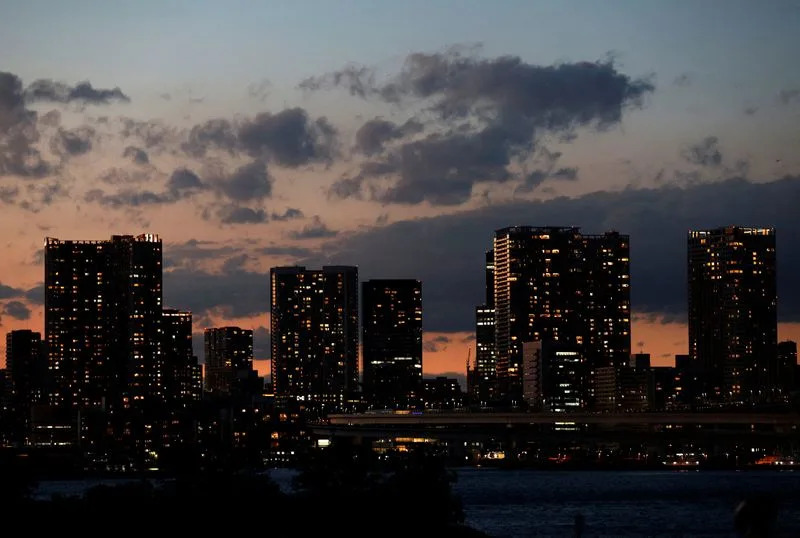U.S. Plans Methane Fee on Oil Firms to Combat Climate Change
Nilanjan Choudhury
Mon, January 15, 2024

The United States has taken a substantial stride in confronting climate change with the Environmental Protection Agency (‘EPA’) proposing a fee on methane emissions originating from major oil and gas facilities. This strategic move aligns with the 2022 climate law, serving as a complementary measure to more extensive regulations on greenhouse gas emissions within the Oil/Energy sector. The target of the EPA's proposal is facilities reporting methane emissions exceeding 25,000 metric tons of carbon dioxide equivalent annually.
Some notable energy firms that the proposed regulatory framework could impact include ExxonMobil XOM, Chevron Corporation CVX and ConocoPhillips COP, among others.
Fee Structure and Incentives for Emission Reduction
The government is suggesting a new fee, starting at $900 per ton in 2024 and going up to $1,200 in 2025 and $1,500 later on. It is crucial to note that the fee is applicable solely to emissions surpassing specified levels. The EPA envisions that, over time, fewer facilities will face charges as they implement emission reduction measures, making them eligible for compliance exemptions.
As per EPA, this fee is part of a comprehensive strategy. They want to use new technology and rules to make companies come up with innovative ways to prompt immediate action within the industry. The goal is to quickly reduce emissions of methane, a gas that is even worse for the environment than carbon dioxide.
Methane's Climate Impact
Methane is a gas that often comes out unnoticed from places where they drill for oil and gas. It has a big effect on making the Earth warmer and breaks down in the air faster than carbon dioxide. So, if we reduce the amount of methane we release, it can quickly help slow down climate change. In December, the EPA made a new rule during the COP28 climate meeting in Dubai. This rule focuses on stopping methane emissions from oil and gas activities. It prohibits routine flaring — burning of natural gas that cannot be processed or captured — and introduces measures for monitoring and detecting leaks.
Even though this is an important step, the fee for methane in the IRA had to be changed to get enough votes. It ended up covering only some of the methane releasesCVX from the industry.
Fee on Oil and Gas Waste
In December 2023, the EPA provided additional details on rules for the proposed 'Methane Fee' applicable to waste generated by oil and natural gas companies. The fee comes with a two-year phase-in period for companies to stop the regular burning of natural gas from new oil wells. This rule, following what Congress said in the 2022 climate law, is a big change. It makes it a rule for oil and gas companies to pay a fee if they release too much methane. The fee structure includes fines from $900 to $1,500 per ton by 2026.
Arguments: For & Against
The EPA estimates that the fee, the first of its kind at the federal level, would have minimal effects on energy production and prices, while significantly contributing to climate change mitigation by incentivizing producers to reduce wasteful methane emissions.
Conversely, industry groups criticized the proposed fee as a potential tax increase that might elevate natural gas prices. They have urged Congress to repeal the fee, asserting that it creates a confusing regulatory regime that stifles innovation. In other words, industry representatives view it as punitive and detrimental to the nation's energy stability.
Companies That Could be Affected
While all U.S.-focused energy firms will come under the purview of the proposed regulations, we look at three of the biggest names in the space:
ExxonMobil: ExxonMobil is one of the largest publicly traded oil and gas companies in the world, with operations that span almost every corner of the globe. XOM is fully integrated, meaning that the Zacks Rank #3 (Hold) firm participates in every aspect related to energy — from oil production to refining and marketing.
Chevron: The only energy component of the Dow Jones Industrial Average, San Ramon, CA-based Chevron is engaged in the exploration and production of oil and natural gas, refining and marketing of petroleum products, manufacturing of chemicals, and other energy-related businesses. The #3 Ranked CVX produces around three million barrels per day of oil equivalent.
ConocoPhillips: Headquartered in Houston, TX, ConocoPhillips is primarily involved in the exploration and production of oil and natural gas. Considering proved reserves and production, Zacks Rank #3 COP is among the largest explorers and producers in the world.





















